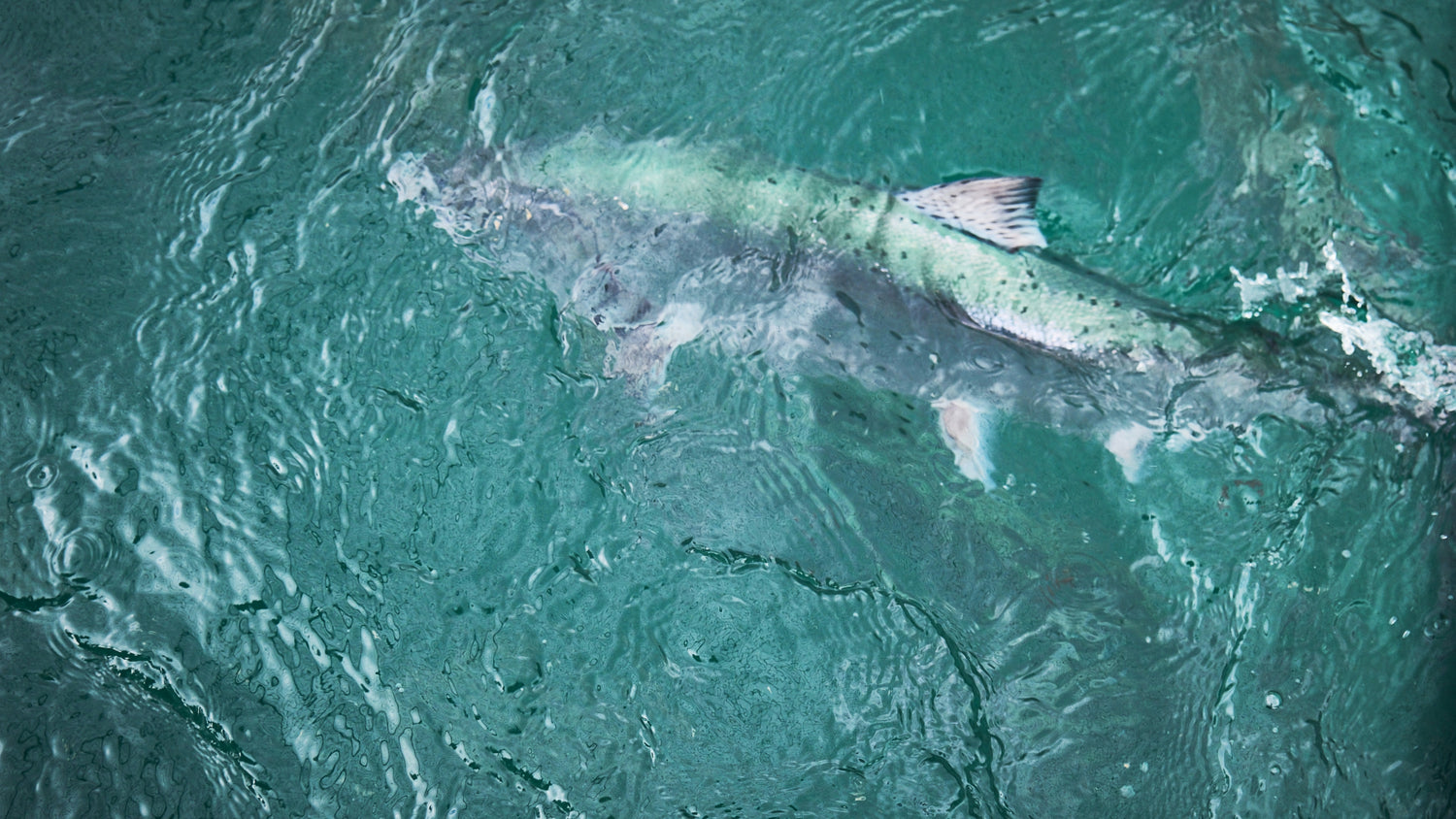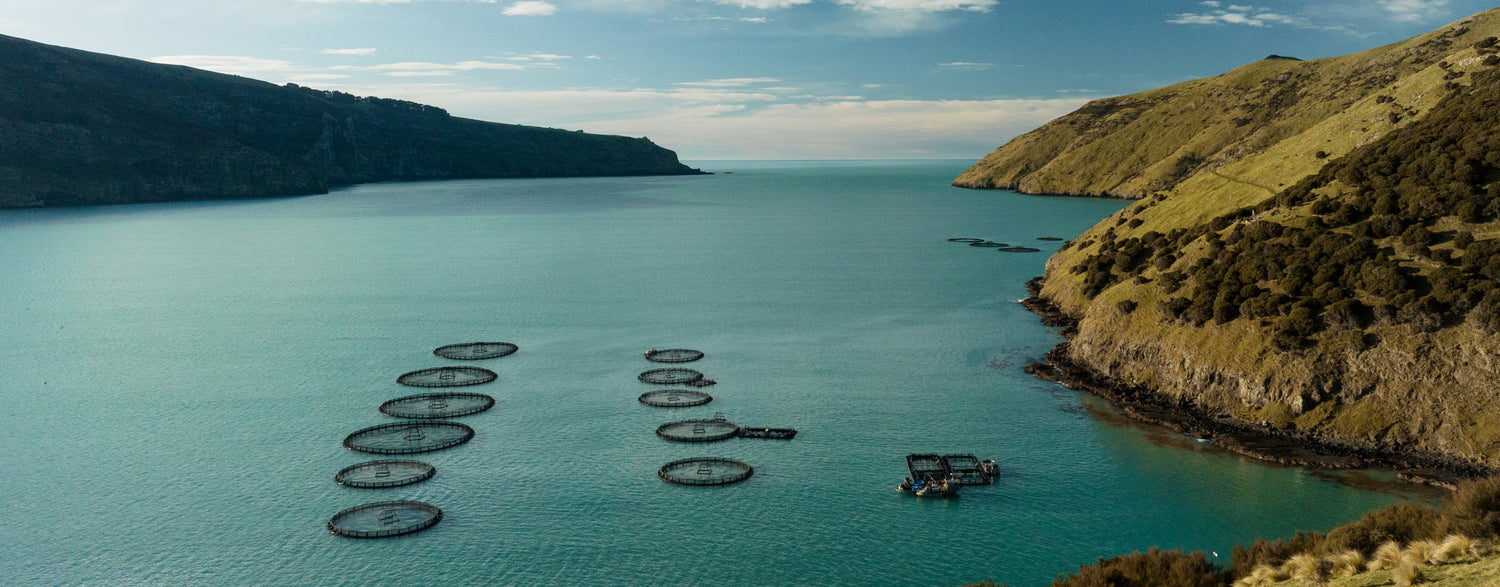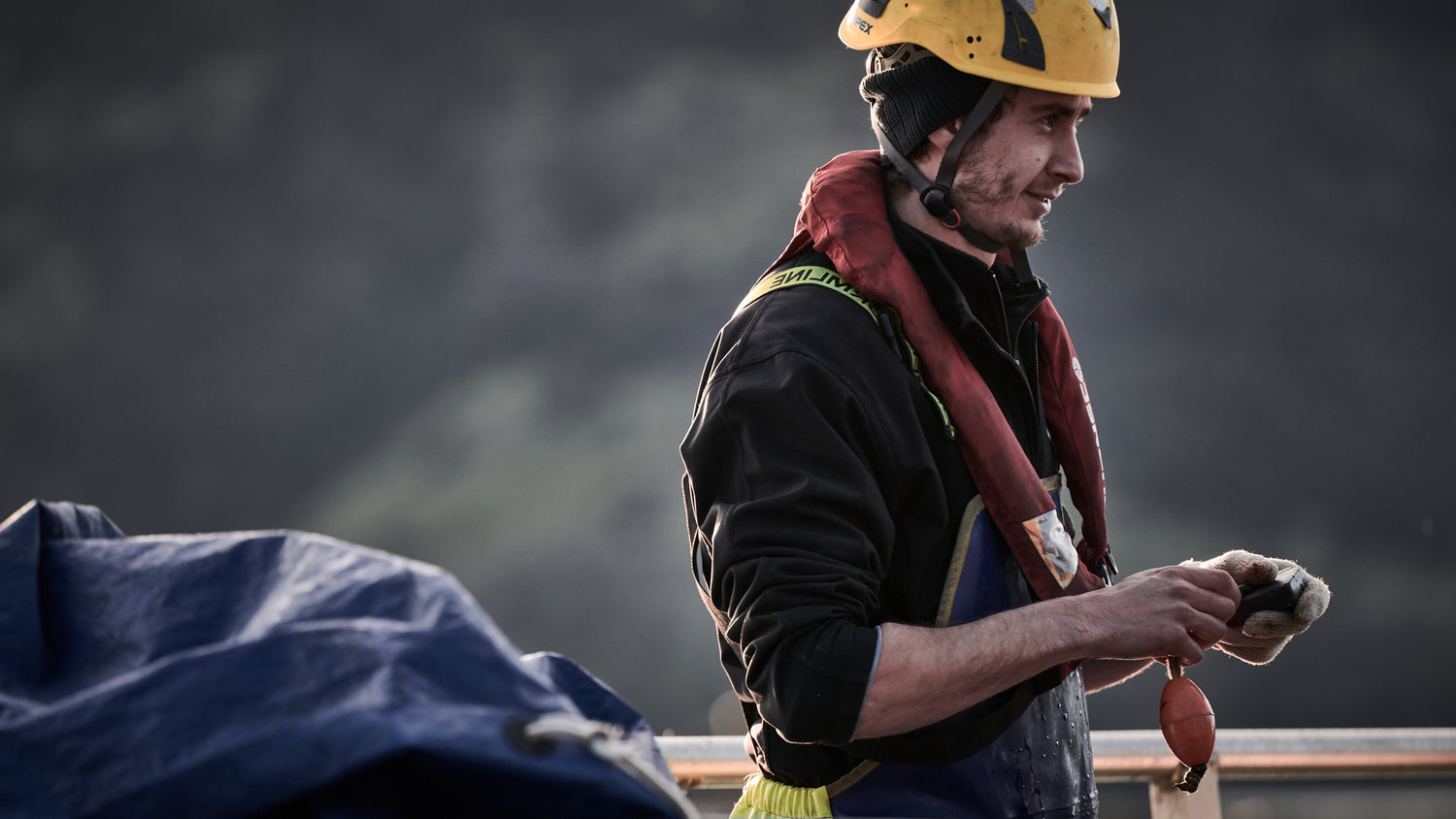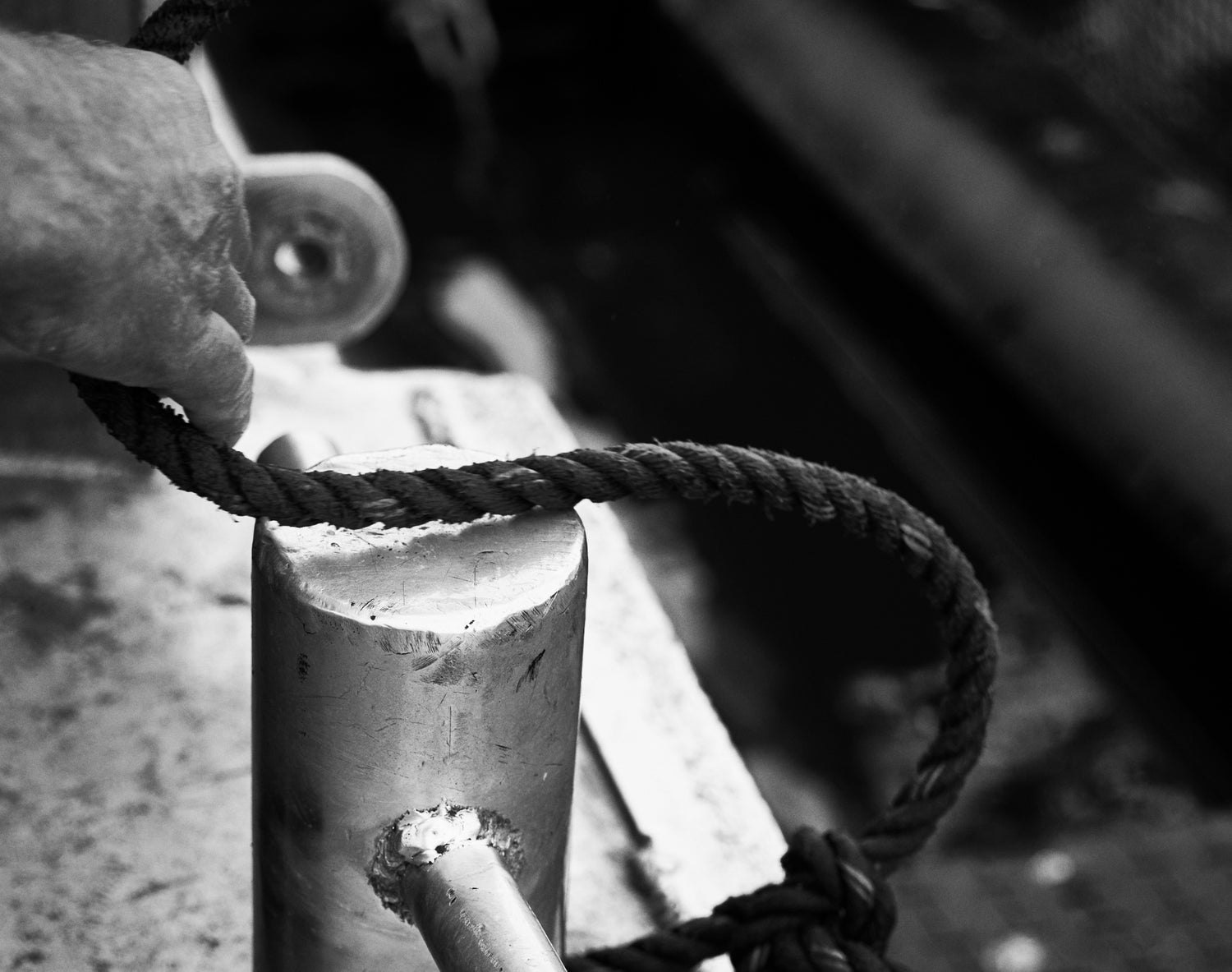
“We’re not in a rush to grow bigger, or for our fish to grow faster. We’re not driven by profit or productivity. We keep our stocking densities low so that each pen is 99% water and 1% fish.”
DUNCAN BATES, FOUNDER AND MANAGING PARTNER
Our care for our King Salmon is at the heart of everything we do. We use individual circles with very low density (around 1% fish) to ensure the best fish health. To preserve our marine environment we never use antifouling chemicals on our nets or even our boats. On the water we don’t use artificial lighting – which means a smaller King Salmon but one with a natural life cycle whilst minimising the impact on Akaroa’s natural ecosystems. We’re the smallest ocean-based King Salmon farmer on the planet as our focus on quality over quantity is what drives us.
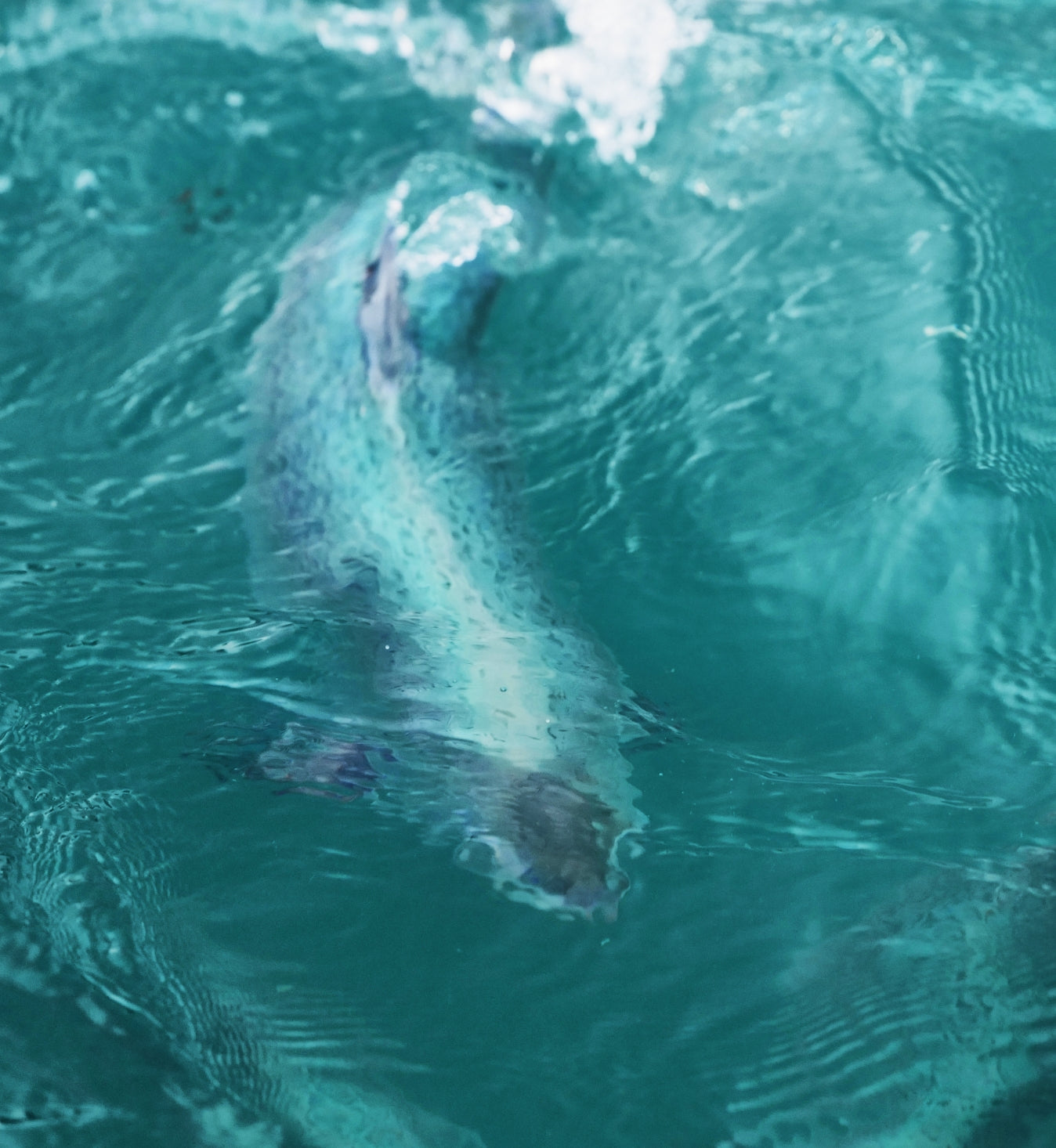
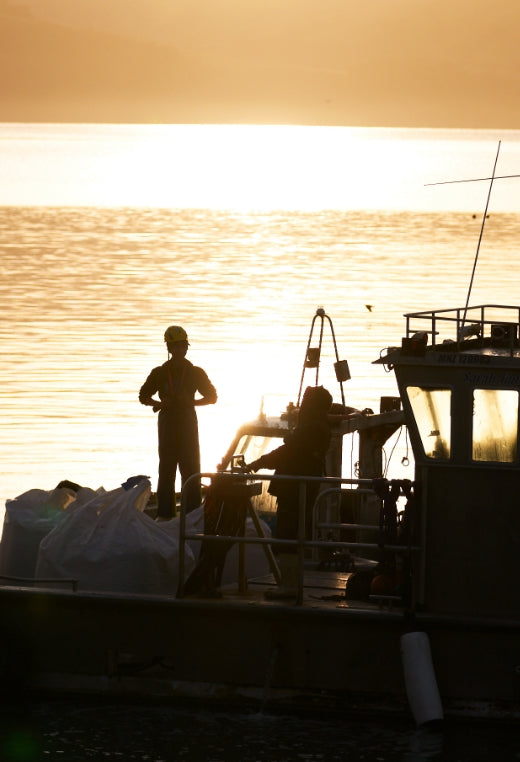
We only use the highest quality feed ingredients to ensure the health and taste of our salmon. Our specially formulated feed allows us to be certified Halal. We were the first King Salmon farmer in the world to lower our use of wild caught fish oil by utilising farmed and fermented algae oil – this means less wild catch and a guarantee of purity. This initiative saw us receive the “Future Innovation” award at the NZ Seafood Stars in 2023. Now we have become the first King Salmon farmer in the world to implement the Blue Impact feed program from Biomar - this is a journey to become a net positive seafood producer whilst lowering our carbon footprint and increasing our use of regenerative and circular products in our feed - read more details on ingredients here from Biomar : Blue Impact and Akaroa Journey
